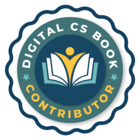I have participated in communities, managed an in-person residential community, and also a Support team, but venturing into a newly established online Community (during a pandemic nonetheless) presented me with new challenges and taught me so much in the first 6 months. I’m sharing what I learned here in the hopes to add more color to what can sometimes feel like uncharted territory in the Community space.
-
Radically collaborate. This is one of our company values and I can attest to the fact that strategically thinking about how your work ties into other teams’ successes will increase your own team’s impact.
For example, we started publishing articles written by our Community Champions and allowed for a good deal of autonomy when it came to the topics they covered. Although there was engagement with the content, we hindered the impact through this autonomy by not aligning with larger company goals. The content would have been more shareable internally if we had taken that approach.
-
Seeking benchmarks? You may be looking for a long time. As a new community, we found ourselves asking, how are we comparing to others and what should our goals even be? It is of course important to understand where you stand in comparison to other communities to identify successes and areas for improvement, however it is not a one size fits all sort of exercise.
I kept finding that each community was so unique based on their customer base, product, age, and specific goals. Therefore finding clear comparisons can feel daunting. To gain a better understanding of how we stack up against others, I recommend researching other communities in the industry with similar goals, while also taking those numbers with a grain of salt.
For example, even for a community that is similar with a customer base and product, it may have been established many years ago, making comparison more difficult. What it boils down to is research, talking with others in the industry, and also collaborating with an account manager if you have one help demystify (our CSM - shoutout to
@Julian - was able to help collect other examples, which cut down on the research time!) -
Feel empowered to pivot even if a plan is already in place. You may have the best intentions as you set up a program with a clear goal that you want to accomplish, but then as you start analyzing the data you learn that you were way off base with what would be realistic.
We had a plan to include a diverse set of customers in a new initiative, however in practice, it was revealed that only a subset of that group had any interest in the initiative, and there were even fewer who met the strict criteria that we had set in place. Spending more time in the research phase would have helped with our efficiency here.
The fear of losing face is real. It can make you question your decisions as a leader, but a good way to combat any resistance you might be feeling when you realize a pivot is needed is by recognizing the reason behind the resistance. Acknowledge it, and then remember it’s okay to have thought something based on the information that you had at the time, or things may have changed, or maybe the full context hadn’t been adequately explored. Either way, it’s much better for the team and the success of your organization to change the plan. Learn from the experience and use it to make even better decisions in the future.
-
Experiment and track the outcomes. Have you ever heard the phrase “work smarter, not harder”. I am guessing yes, but it is still something that I find myself repeating at times. Starting a new Community, or building anything for that matter can sometimes feel like throwing spaghetti at the wall and seeing what sticks. It’s fine to be throwing that spaghetti, but if you watch it fall and don’t write down how you cooked that spaghetti, and learn from it, well…you’ll never have any spaghetti that sticks.
All of this is to say, experimenting is essential and everyone should be doing it, but as we all try to move fast and accomplish a lot, if you aren’t consciously tracking your experiments and outcomes, you will be spending a lot of time repeating the same mistakes.
-
Do things that don’t scale - focus on engagement. I found myself trying to think of a way to track the activity of 100s of Champions activities - spreadsheets, dashboards, API, oh my! but the reality was, we only had 10 Champions in the program. Realistically, a simple spreadsheet would be just fine. Remind yourself of where you are in your community’s development. Yes, in the future you may have 100s of Champions to track, but instead of spending your time thinking of how you can efficiently track these hypothetical Champions, focus on learning from the 10 you have today.
Analyze what’s working well, what can be improved, and based on the success of your pilot program, decide what the next steps will be. Starting out small and iterating will help to mitigate any large investments of time and resources. Look at the problem in front of you and what you can learn from it, rather than the potential future problem that may or may not occur, or as I like to call it, a problem for “Future Chloe”.
-
If you build it, they will…still not come! This one might seem obvious, but there were several times when we came up with an idea or initiative that we just knew would take off, only to create something that we discovered wasn’t getting the participation that we had initially hoped for. Looking back on it now, assuming that an event or initiative would be top of mind for someone who isn’t involved in the creation/coordination of said project, may have been naive of me.
My takeaway is, even if it seems like an obvious win, approach it as if no one would care - that way you are proactive and consider every way that you can get the word out. Worse case scenario: someone thinks “oh there’s Chloe again with that info” and then they move on with their day. Even if you think you are sharing too much, it really never is. In our fast-paced lives with attention spans becoming shorter and shorter, sharing out what you are working on makes a huge impact. With that said, remember your audience and ask yourself “why would this person care?” and then tailor your update to their needs and goals.
Those are my takeaways from the first 6 months. I hope these are helpful. Let me know what your experience has been in these areas, I’d love to hear from you in the comments!





